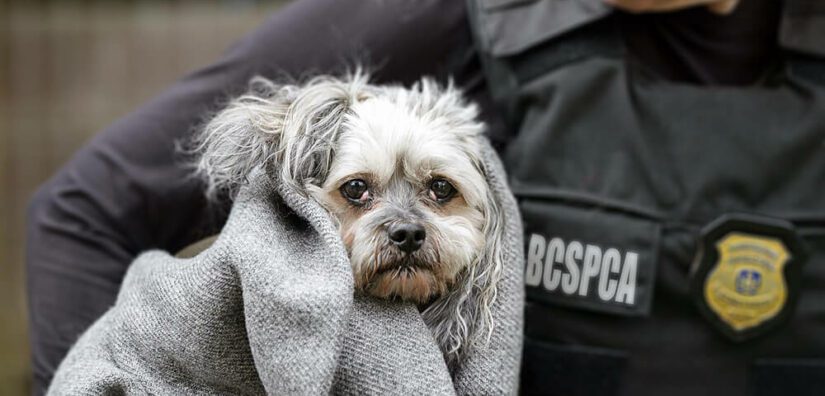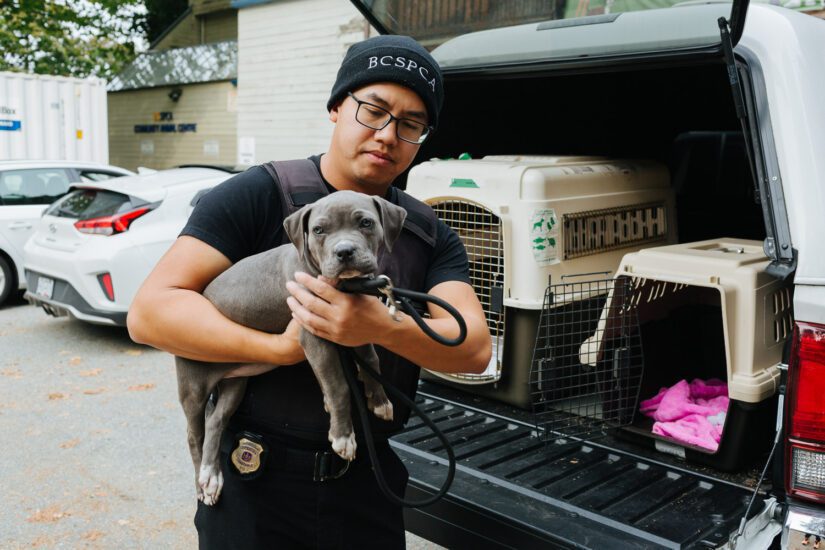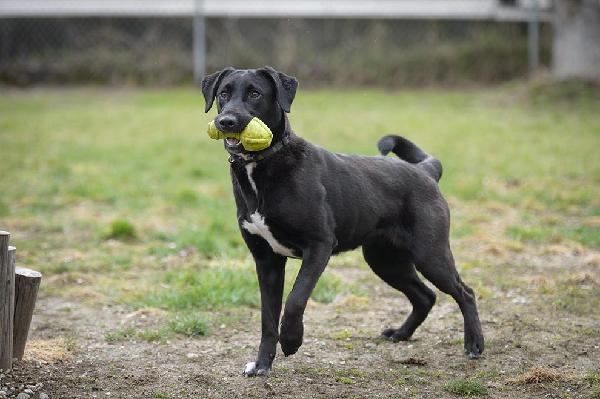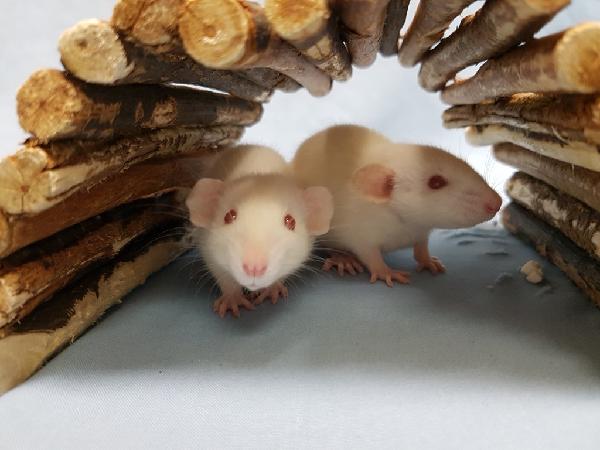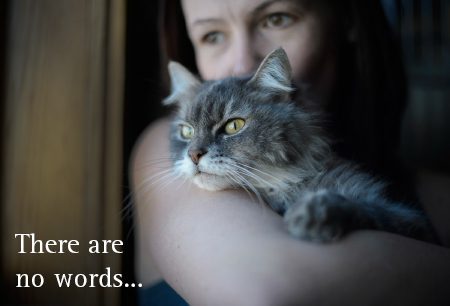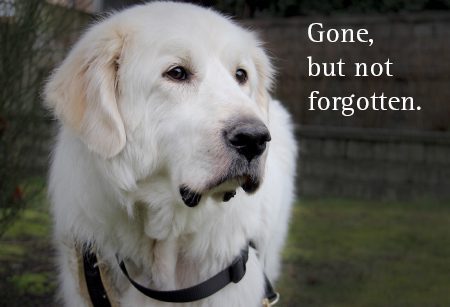Animal protection
PCA Act
The BC SPCA derives its powers to investigate and take action in instances of animal cruelty from the Prevention of Cruelty to Animals Act (PCA Act).
We are the only animal welfare organization in B.C. with the authority to enforce laws relating to animal cruelty and to recommend charges to Crown Counsel for the prosecution of those who inflict suffering on animals.
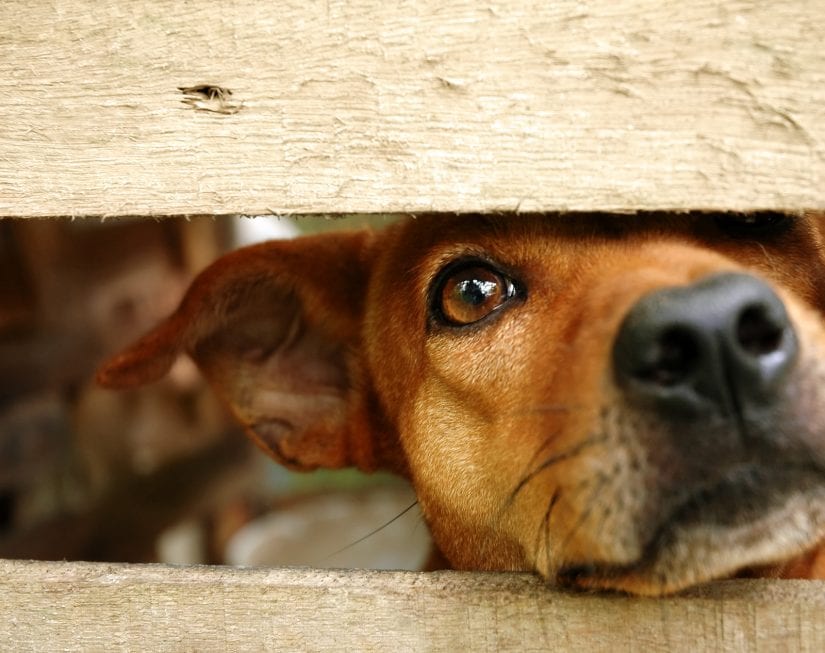
Criminal Code of Canada
It is a crime in Canada to intentionally harm animals. Anyone who deliberately harms animals can be charged under the Criminal Code of Canada.
The Criminal Code of Canada deals specifically with cruelty to animals in sections 444 to 447.
Our Animal Protection team can recommend charges for Crown Counsel for the prosecution of individuals who inflict suffering on animals under the Criminal Code of Canada.

An animal is in distress, according to the Prevention of Cruelty to Animals Act (PCA Act), if it is:
(a) Deprived of adequate food, water, shelter, ventilation, light, space, exercise, care or veterinary treatment,
(a.1) Kept in conditions that are unsanitary,
(a.2) Not protected from excessive heat or cold,
(b) Injured, sick, in pain or suffering, or
(c) Abused or neglected.
Get more information on animals in distress and how you can help report animal cruelty.

If you’re concerned that an animal may be in distress, call us. Your actions could help save an animal, and you may also be protecting children or adults at risk of being harmed.
To report an animal in distress (farm animals, domestic animals and wildlife), please call the BC SPCA Animal Helpline: 1-855-622-7722, open 8:00 a.m. to 6:00 p.m., seven days per week. Closed on Statutory holidays except for wildlife calls in the South Vancouver Island Region (Wild ARC) from 8 to 4:30 p.m.
If this is an animal emergency outside of these hours, please contact your local police department , RCMP or the Conservation Officer Service (RAPP).

How the BC SPCA can help animals in distress
Our Animal Protection Officers respond to all complaints of animal cruelty and neglect, and can get involved whenever any animal, with the exception of species at risk or wildlife that are not in captivity, is found in distress. In severe cases, they may seize animals and recommend animal cruelty charges.
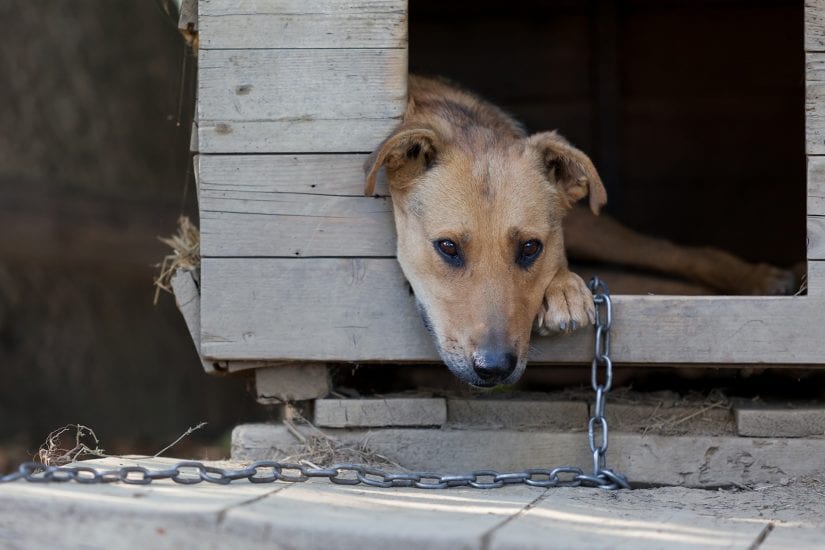
How to recognize an animal in distress
An animal is in distress, according to the Prevention of Cruelty to Animals Act (PCA Act), if it is:
(a) Deprived of adequate food, water, shelter, ventilation, light, space, exercise, care or veterinary treatment,
(a.1) Kept in conditions that are unsanitary,
(a.2) Not protected from excessive heat or cold,
(b) Injured, sick, in pain or suffering, or
(a.2) Not protected from excessive heat or cold,
(b) Injured, sick, in pain or suffering, or
(c) Abused or neglected.
The following examples may help you to recognize signs that an animal is in distress and needs help. Warning: graphic photos are included and viewer discretion is advised.
- Thin and emaciated: Extremely thin, rib bones and hip bones are visible. This could indicate starvation or illness. Photo Example – caution: graphic
- Little to no access to shelter, food or water: All companion, farm and captive wildlife should have access to food, water and shelter from the elements.
- Wounded or injured: May have an obvious wound or be limping, or a guardian physically abusing an animal by hitting or kicking.
- Coat in poor condition: Could indicate a flea or tick infestation. – Photo Example, Photo Example, Photo Example – caution: graphic
- Hair badly matted: Can cause distress to an animal. Photo Example, Photo Example, Photo Example – caution: graphic
- Overgrown or neglected nails or hooves: Photo Example, Photo Example– caution: graphic
- Untreated infections: Photo Example, Photo Example– caution: graphic
Cruelty to Farm Animals
Cases where farm animals suffer as a result of “generally accepted management practices” cannot be prosecuted under the PCA Act. However, people who allow their farm animals to be in distress as a result of inadequate basic care can be prosecuted.
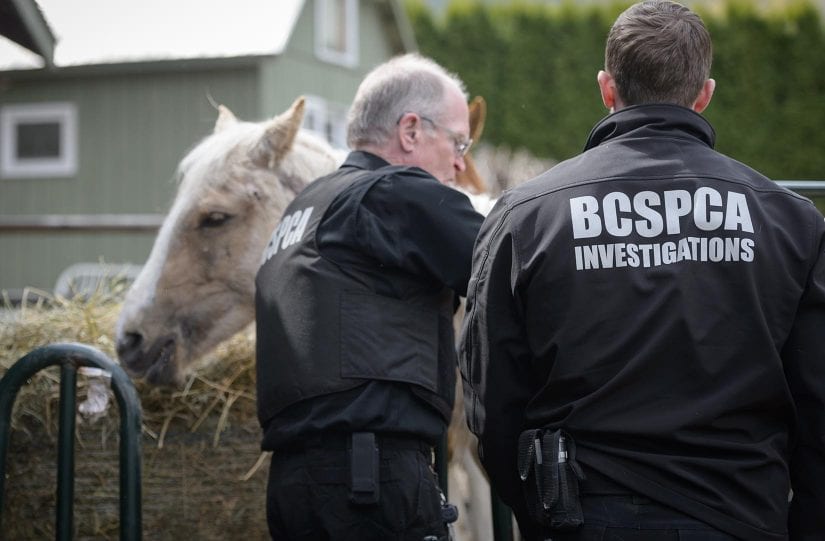
Learn more about the BC SPCA’s Farm Animal Welfare programs, and how the BC SPCA is working to improve the standards of care for farm animals.
The Prevention of Cruelty to Animals Act (PCA Act) is the provincial animal welfare legislation that outlines required standards of care. The BC SPCA was created under the auspices of the PCA Act, and that’s what gives it the power to investigate and take action on animal cruelty cases. It also details the BC SPCA’s constitution and powers of inspection and enforcement.
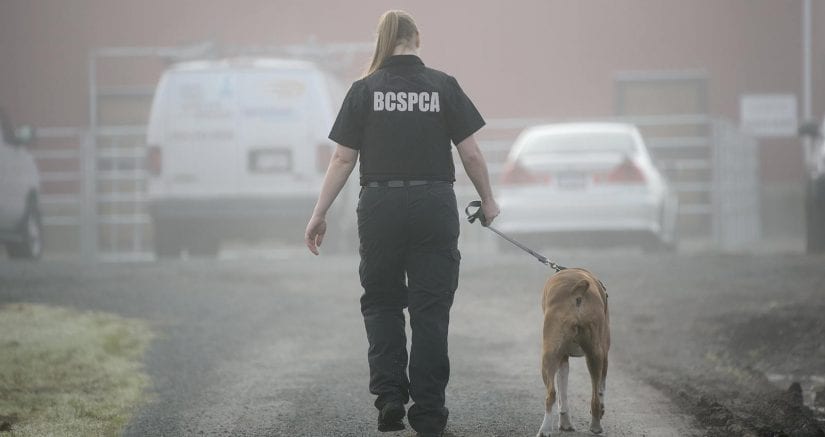
The BC SPCA is the only animal welfare organization in B.C. with the authority to enforce laws related to animal cruelty. In 2008, we successfully campaigned for amendments to the Act that significantly increased protection for abused and neglected animals in B.C.
We continue to propose and support amendments to strengthen the Act. For example, in July 2015, the B.C. Ministry of Agriculture announced a new regulation to adopt the Codes of Practice for the Care and Handling of Dairy Cattle into the PCA Act, specifically outlining what is considered a ‘generally accepted practice’. The inclusion of the Codes complemented our work with the BC Dairy Association, the BC Milk Marketing Board and the dairy industry to improve the welfare of dairy cattle.
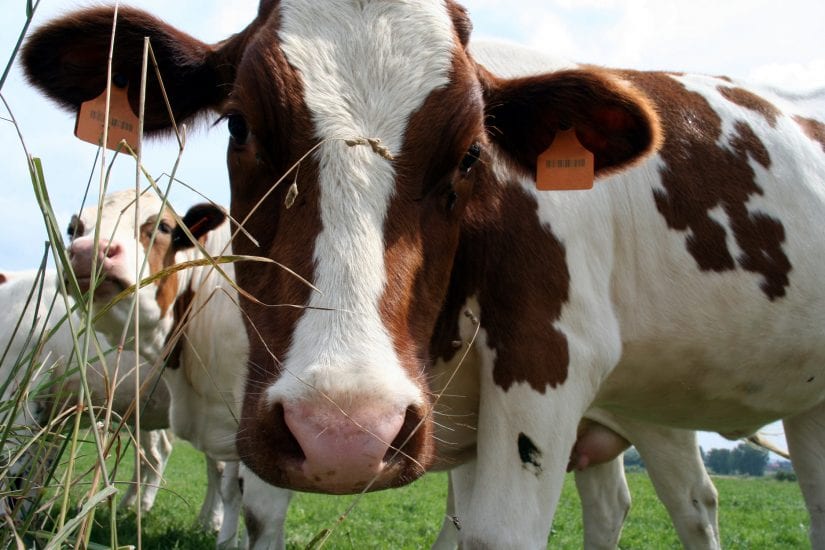
In February 2017, the BC SPCA applauded the government of B.C’s move to target irresponsible dog and cat breeders. The proposed amendments to the PCA Act would enable the B.C. government to regulate commercial breeders through either a registration or licensing system that will help ensure commercial cat and dog breeders are treating animals with the respect and care they deserve.
The BC SPCA has a legal obligation to provide animal guardians with “an opportunity to relieve the animal’s distress.”
The objective of every investigation is to relieve and prevent the distress of an animal through education, cooperation and, if necessary, prosecution under the law.
Initially, an investigator may issue notices to a guardian that he must seek medical attention for his animal. Notices can also apply to an animal’s environment, such as building a raised and insulated shelter.
The investigator will give the animal guardian a time-frame for compliance, and if he or she fails to comply with notices, the investigator can either issue further notices allowing the guardian more time, or apply for a search warrant to seize the animal.
Acting under the law, the BC SPCA is not empowered to remove animals from private property without a search warrant unless those animals would not survive without immediate medical intervention.
Animals may be lacking adequate food, shelter and veterinary care, or even be sick and in pain, but unless they are in immediate danger of dying they are not in critical distress under the law.

B.C.’s Prevention of Cruelty to Animals Act (PCA Act) outlines generally accepted practices of animal management as a reason by which distress is legally acceptable.
Generally accepted practices of animal management are ways of handling or caring for animals that are commonly used by those responsible for them. Sometimes these practices still cause pain, suffering and distress to animals. If the practices haven’t been written down in any official document, it is up to experts like veterinarians and leaders in the relevant industry (such as animal farming, sled dogs, animal breeding or horse racing) to give expert testimony in court when there is an animal neglect or cruelty case.
Animals are better represented when practices are written and agreed to by a committee of experts that includes animal welfare experts. We call these documents ‘standards’ or ‘Codes of Practice‘. In Canada, the National Farm Animal Care Council coordinates the development of the Codes of Practice for the care and handling of farm animals. The Codes of Practice are nationally developed guidelines that serve as our national understanding of animal care requirements and recommended practices.
In 2019, the Codes of Practice were included in provincial law – through the adoption of the Animal Care Codes of Practice Regulation under the PCA Act. This means that the Codes of Practice for some industries now serve as the minimum standard for what is considered to be a ‘reasonable and generally accepted practice’ of farmed animal care in B.C.
For example, science shows that castrating (neutering) cattle is painful at any age. However, the Code of Practice only requires farmers to use pain control on animals over six months of age. Despite the fact that castrating without pain control causes pain and distress, farmers cannot be charged with animal cruelty for this distress because this is a ‘generally accepted practice’.
In order to better protect animals, it is important to continue to strengthen standards and Codes of Practice, so that generally accepted practices better align with science and societal values of how we should treat animals.
Read more about laws for farmed animals.
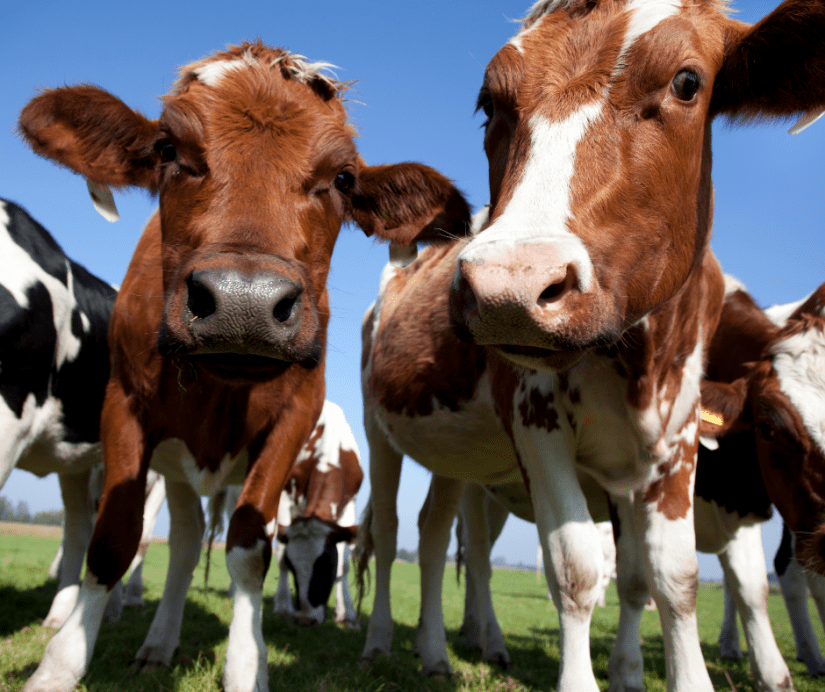
A ban (or prohibition) on owning animals is one of the most effective ways to prevent someone who has been convicted of animal cruelty from simply acquiring more animals.
Prohibitions are enforced in part through public reporting and in part through BC SPCA Animal Protection Officers monitoring. Given the media attention that often follows a person’s conviction of animal cruelty and ban on owning animals, we often find that neighbours or people living in the same community as the former animal owner are more than happy to report to us should this person obtain new animals. Our Animal Protection Officers also do random inspections when possible.
If you are aware of someone who has a ban and you know that they also own or care for an animal, please call the BC SPCA Animal Helpline: 1-855-622-7722.
Learn more about our cruelty investigations.
